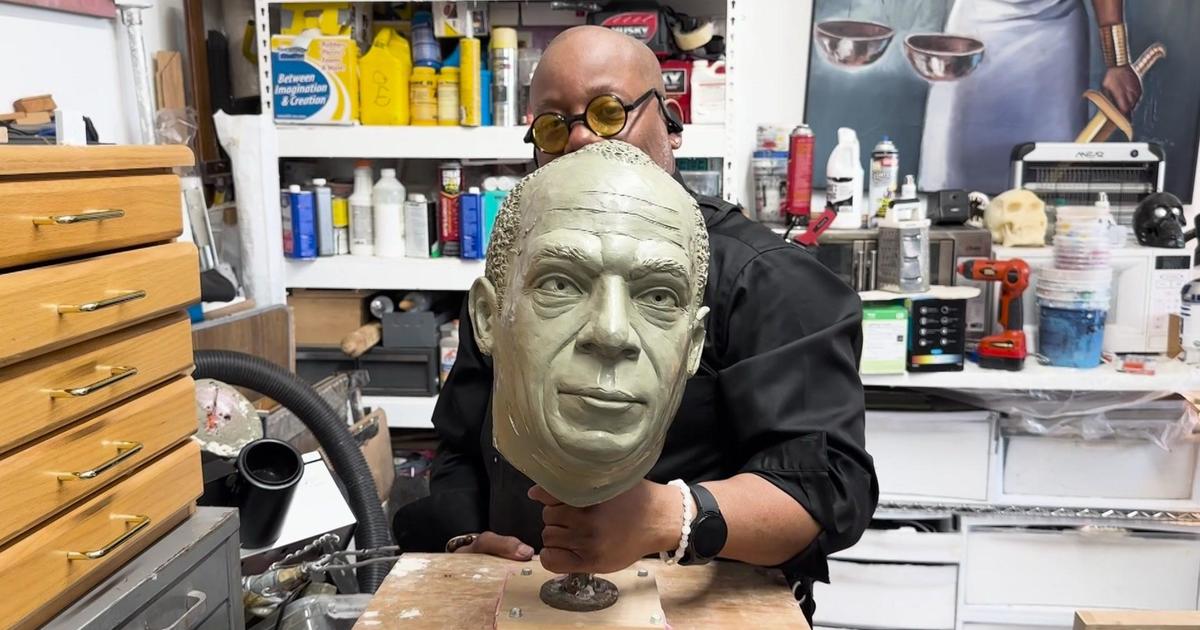Jury: Pataki's Program To Institutionalize Sex Offenders Didn't Violate Rights
NEW YORK (CBSNewYork/AP) -- A jury decided Wednesday that former New York Gov. George Pataki did not violate sex offenders' rights by authorizing a program to involuntarily commit them to mental institutions after they completed their sentences.
The practice was halted in 2006 after a state court found that several men who were committed should have been entitled to hearings before it happened. Some remained in psychiatric institutions for years afterward.
Six of the sex offenders sued Pataki and other officials in 2008, claiming the officials had abused their authority by denying them their freedom.
The Sexually Violent Predator initiative was a "sham" attempt to "bypass the Constitution," plaintiffs' attorney Reza Rezvani said in closing arguments Monday. "You know that the Constitution applies to everybody. No one is saying don't lock up the bad guys. But you do it right and you're fair."
Pataki's attorney, Abbe Lowell, told the jury that the most shocking part of the case was "what the plaintiffs did, not what the defendants did."
At trial, jurors heard testimony of plaintiffs who served lengthy prison sentences for sex assaults on minors and crimes. One, Louis Massei, testified that once he was committed to psychiatric care, he and the other convicts were never given any treatment.
"We were separated from the other patients," Massei said. "We were treated like `the experiment.'"
Massei, who was convicted of gang raping a 16-year-old, said he felt like part of the "experiment" at the hospital on Wards Island and complained about his roommate there.
That roommate happened to be Daniel Rakowitz -- the East Village Cannibal -- who famously served his dead girlfriend to homeless people in 1989.
Pataki also testified at trial. He said he approved the program after an assemblyman and a prosecutor suggested it could be done under existing law.
He testified he authorized evaluations of sex offenders before they were freed as a way to protect the public, not to rob them of liberty. Defense lawyers noted that of the nearly 800 inmates examined, fewer than 200 were committed to mental institutions.
The lawsuit had alleged that Pataki and officials with the Office of Mental Health and Department of Correctional Services conspired to deprive them of their constitutional rights. But the former governor claimed he ``didn't know what law was being used or what particular part of the law was being used'' to implement the program, nor did he pay close attention to how it was carried out.
"I personally never had any contact with DOCS or OMH, so no, I didn't direct them directly," he said.
About 20 states now allow certain sex offenders to be detained at psychiatric facilities after their sentences are served if they have a mental disorder that would make them more likely to offend again. For several years, Pataki had tried to get state legislators to address the issue unsuccessfully.
Pataki's move to have some sex offenders committed came after a newly paroled rapist killed a woman in 2005 in a suburban mall parking lot.
You May Also Be Interested In These Stories
(TM and © Copyright 2013 CBS Radio Inc. and its relevant subsidiaries. CBS RADIO and EYE Logo TM and Copyright 2013 CBS Broadcasting Inc. Used under license. All Rights Reserved. This material may not be published, broadcast, rewritten, or redistributed. The Associated Press contributed to this report.)



